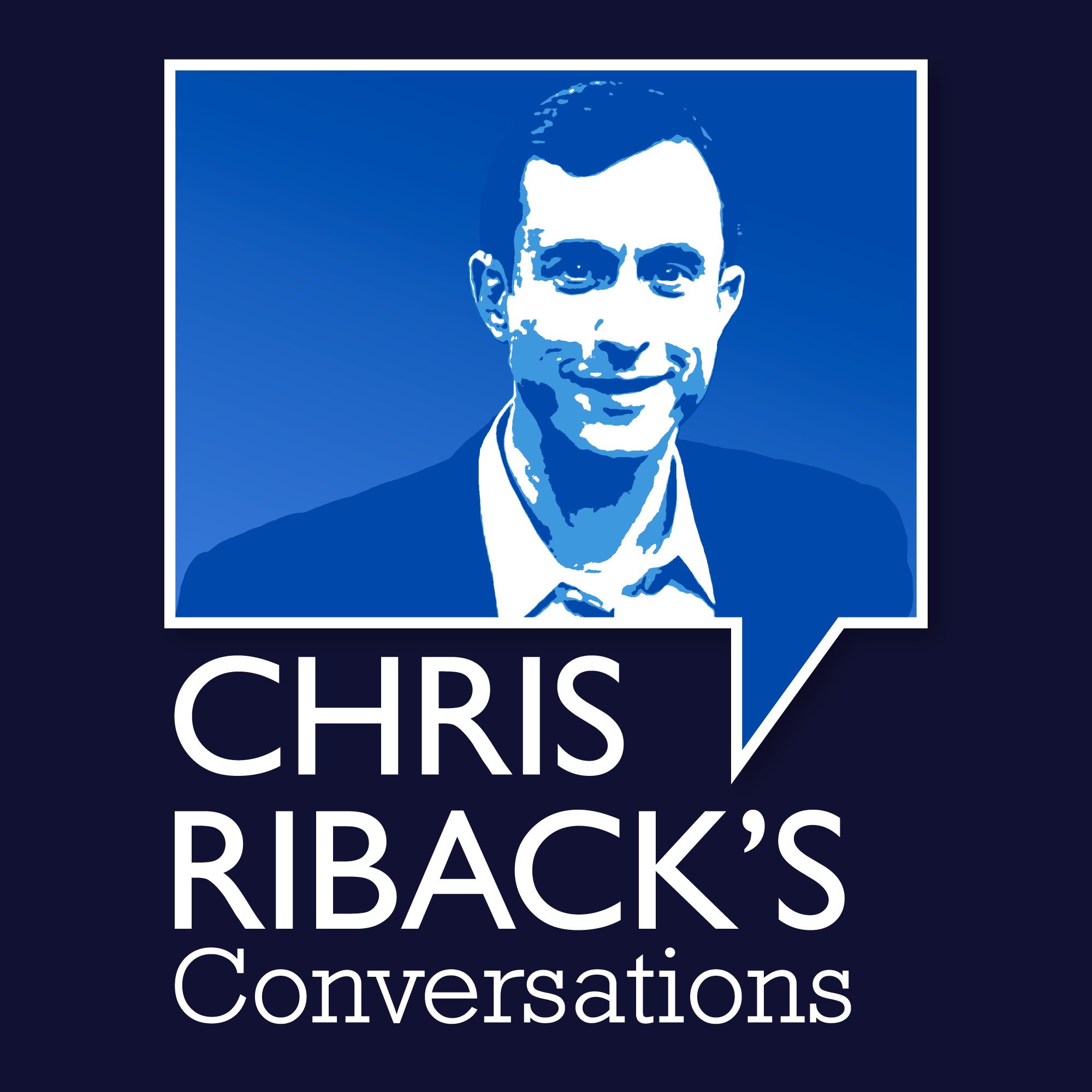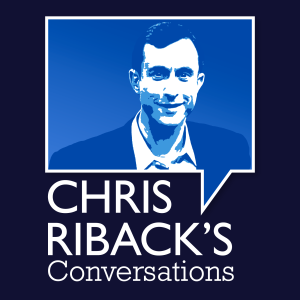
293.5K
Downloads
176
Episodes
Engaging smart thinkers on issues of the day. Subscribe for newsletter & show notes at chrisriback.com (podcast formerly "Political Wire Conversations")
Engaging smart thinkers on issues of the day. Subscribe for newsletter & show notes at chrisriback.com (podcast formerly "Political Wire Conversations")
Episodes

Wednesday Feb 05, 2014
Teddy Goff, digital director for President Obama's re-election campaign
Wednesday Feb 05, 2014
Wednesday Feb 05, 2014
With the midterm election season approaching, every aspect of every race will be watched: The issues; positioning; and, of course, campaigns. And within the campaigns, special attention on what’s new – and that means digital.So what can we expect from digital campaigns? What’s the next wave of ways candidates will try to connect with us – and especially young voters – directly through Facebook, Twitter and so on? How will they get us to donate?If during either of President Obama’s campaigns you clicked, watched, liked or gave online, then you’re familiar with our guest. Teddy Goff was responsible for state-level digital campaigns in 2008 and served as Digital Director for President Obama’s 2012 campaign. Today he is a Partner at Precision Strategies and was recently named one of Time’s 30 people under 30 who are changing the world.

Thursday Jan 30, 2014
Stan Greenberg, Democratic pollster
Thursday Jan 30, 2014
Thursday Jan 30, 2014
The agenda is set. President Obama gave his State of the Union address this week, and he was clear: He wants a year of action, and he’ll go it alone if Congress won’t go with him.But with Midterm Elections driving the political calendar and 2016 coming on fast – did the President lay groundwork for Democrats to succeed or openings for Republicans to attack? How will the substance – the ideas and goals – resonate with American voters? And for a President who’s been struggling in the polls, has he offered a plan that might turn things around?Few understand the art and the science of polling more than Stan Greenberg: Polling adviser to President Bill Clinton, Al Gore and Nelson Mandela, among many others; CEO of Greenberg Quinlan Rosner; and Co-Founder Democracy Corps.

Sunday Jan 26, 2014
Inside the making of the State of the Union address
Sunday Jan 26, 2014
Sunday Jan 26, 2014
It’s one of the most important speeches ANY President gives in ANY year. Both houses of Congress attend. The Supreme Court justices. Joint Chiefs. Nearly the entire Cabinet.The speech is not mandated. Article II of the Constitution calls only for a report “from time to time” from the President to Congress on how things are going.It’s the State of the Union Address. And when it airs Tuesday night – when the House Sergeant at Arms shouts: “Madam Speaker, the President of the United States!"” the pageantry will begin.But the main event will be the speech. The words. The prose. The combination of substance and style that simultaneously seeks to define the national agenda and persuade Americans and Congress to believe in it.But how do those words get onto the page? What is the process? What tradeoffs occur? When does a President step in? And when does the President say: This is done.To get an insider’s view of the Art of Speechwriting – with special focus on the State of the Union Address – we spoke to insiders, speechwriters, from the last three Administrations: * From the Obama Administration: Former Director of Speechwriting Jon Favreau * From George W. Bush: former Special Assistant and Speechwriter David Frum * And from Bill Clinton: Former Assistant to the President and Director of Speechwriting Michael WaldmanEach wrote words for and with the President at different times in history. Different circumstances and crises and dreams. What makes a great speech? What defines the Art of Speechwriting? That’s what we asked them.

Thursday Jan 23, 2014
Jon Favreau, former speechwriter for President Obama
Thursday Jan 23, 2014
Thursday Jan 23, 2014
The connection between policy and communication is a close one. Get only the policy right, and you’re a wonk. Focus solely on the communication, and you risk being seen as just another political sweet-talker.For the Obama administration – from health care to the economy to dealing with wars around the world – there’s been a continual need to score high on both fronts. So how to strike the right balance?One expert on the topic – Jon Favreau, Former director of Speechwriting for President Obama, now a Founding Partner at Fenway Strategies and columnist for The Daily Beast.

Tuesday Jan 21, 2014
Mike Murphy, GOP media consultant
Tuesday Jan 21, 2014
Tuesday Jan 21, 2014
The challenges for Republicans keep piling up. First it was the Great Divide, the battle between the Tea Party wing and so-called Establishment. Now, NJ Gov. Chris Christie – Fort Lee and Bridgegate, along with Hoboken and Hurricane Sandy Funds. And on Friday, the release of a new – more human – documentary on Mitt Romney – a film that already is raising questions of what type of Presidential candidate Republicans should nominate and how they should run their campaigns.With 2014 Midterms and a possible Senate takeover on the horizon – and the 2016 Presidential campaign on the mind – can Republicans get their act together? And if so, what’s their best path forward?To help provide answers, renowned Republican media strategist Mike Murphy. He has handled media and strategy for more than 26 successful Gubernatorial and Senatorial campaigns; he helped run John McCain’s Presidential race in 2000; and today, he’s a partner at Revolution Agency in Washington D.C. and when you’re not following him on Twitter, you can read him in Time and see him on Meet the Press.

Thursday Jan 16, 2014
Steve Kornacki, Host of "Up with Steve Kornacki" on MSNBC
Thursday Jan 16, 2014
Thursday Jan 16, 2014
New Jersey Bridgegate is not slowing down. Questions around how and why several George Washington Bridge access lanes were shut last September – around what Governor Chris Christie knew and when he knew it – are not only growing, they’ve now gone viral.Thanks to Jimmy Fallon, Bruce Springsteen and a devastating “Born to Run” update, the scandal has jumped from political fiasco to pop culture phenomenon. And like those cars in Fort Lee, the issues pile up: Who’s lying? Who’s telling the truth? Why was this done? And why did no one have the brains or courage to stop it?If you want answers, few have covered this story more closely – or know more about New Jersey politics – than Steve Kornacki, host of MSNBC’s Up with Steve Kornacki.

Tuesday Jan 14, 2014
Chuck Todd, Chief White House correspondent and political director for NBC News
Tuesday Jan 14, 2014
Tuesday Jan 14, 2014
It took less than 10 days for our first big political scandal of the year to hit: Chris Christie’s revenge. Bridgegate.Whatever you call it, as we try to understand what happened – and as the New Jersey State Legislature and U.S. Attorney’s Office do the same – questions about Gov. Christie’s temperament and management ability. Is he fit – emotionally and skillfully – to run our country? What does this mean for the Republican party and, of course, the 2016 Presidential race.And then there’s Congress. With midterm elections on the horizon, another key member announces retirement. How might this affect the campaigns and the ultimate balance?Joining me to discuss New Jersey, Washington and beyond: Chuck Todd, NBC News' Chief White House Correspondent and Political Director, as well as Host of “The Daily Rundown” on MSNBC.

Thursday Jan 09, 2014
David Frum, author and former speechwriter for President George W. Bush
Thursday Jan 09, 2014
Thursday Jan 09, 2014
As both parties kick off the 2014 political season – and Midterm primaries and Elections creep closer on the calendar – both parties face questions. For Democrats: How to defend and, if they can, advance Obamacare, minimum wage and other initiatives. For Republicans, the big question also seems to be a basic one: Can’t they all just get along?The forced government shutdown, various election battles, competing strategies around health care and more have left party members and party watchers wondering what comes next. Many ask how the gap created between the Tea Party wing and the so-called Established branch will affect Republicans’ ability to drive policy and win campaigns.One person who spends time considering the policy and the politics: David Frum, contributing editor at The Daily Beast, CNN contributor, former special assistant and speechwriter for President George W. Bush, and author of several books, including most-recently “Why Romney Lost (And What The GOP Can Do About It).

Tuesday Jan 07, 2014
Joe Trippi, political consultant and media strategist
Tuesday Jan 07, 2014
Tuesday Jan 07, 2014
The holidays are over and politics is back.After what was a relatively quiet two weeks – President Obama didn’t even have to leave Hawaii this year – Washington and our other political centers are back to life.And as we begin the 2014 Midterm season – and with a State of the Union address on the way – some analysis on where we stand? And for this conversation, more specifically, where does the Democratic Party stand?One major issue: Inequality. Unemployment benefits, minimum wage and new efforts to address a growing financial gap in our country. And of course another issue: Obamacare. Now that it’s in full action, how will it work as policy and politics?Few spend more time thinking about Democratic chances – or helping mold public opinion – than Joe Trippi. Political Strategist & Media Consultant who has run or helped run campaigns for President, governor and more; Founder and President of Trippi and Associates; and author of “The Revolution Will Not Be Televised: Democracy, the Internet and the Overthrow of Everything."

Wednesday Dec 18, 2013
Frank Rich, writer at New York Magazine and Executive Producer of Veep on HBO
Wednesday Dec 18, 2013
Wednesday Dec 18, 2013
The intersection of politics and drama is a busy place. Indeed, for many of us, the tensions, heroes, villains, battles, betrayals and just plain craziness of politics is what keeps us engaged.Certainly the public policy matters. But the narrative behind that policy – the stories and the characters –often best reveals the policy’s meaning and the impact. It also often provides the best clues of what might happen next.And this year, politics watchers have certainly had their share of drama – Shutdowns, Healthcare rollout, party splits and nuclear options. How should we make sense of what we’ve seen? And as a Midterm year approaches, what plot twists might come next?Few spend more time considering and connecting the policy, politics and drama than Frank Rich – New York Magazine writer at large, Executive Producer of HBO’s award-winning show “Veep,” author, former NY Times columnist and, for more than a decade, that paper’s Chief Drama Critic.
